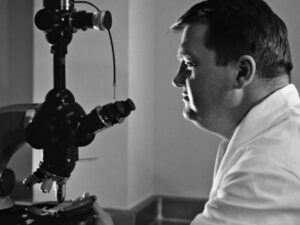The phase III PhALLCON trial met its primary endpoint, demonstrating that adult patients with newly-diagnosed Philadelphia chromosome-positive acute lymphoblastic leukemia treated with Iclusig (ponatinib) plus reduced-intensity chemotherapy achieved higher rates of minimal residual disease-negative complete remission compared to imatinib.
Selina M. Luger, a hematologist-oncologist and acute leukemia and myeloid disorders researcher, was appointed chair of the ECOG-ACRIN Cancer Research Group Leukemia Committee.
AstraZeneca’s tablet formulation of Calquence (acalabrutinib) has been approved in the US for all current indications, including adult patients with chronic lymphocytic leukemia, small lymphocytic lymphoma and for patients with relapsed or refractory mantle cell lymphoma, which is approved under accelerated approval based on overall response rate.
Results from the ELIANA pivotal clinical trial showed the long-term benefit of Kymriah (tisagenlecleucel) in children and young adult patients with relapsed or refractory B-cell acute lymphoblastic leukemia, with a maximum survival follow-up of 5.9 years.
Researchers at The University of Texas MD Anderson Cancer Center have discovered that adolescent and young adult cancer survivors of acute lymphoblastic leukemia and acute myeloid leukemia have reduced long-term survival rates compared to their peers without cancer.
Most of these medical pioneers, nicknamed the “Cancer Cowboys” are gone now. Their ranks once included James Holland, Tom Frei and Emil “Jay” Freireich. Arguably, the best known of this group, Donald Pinkel, died March 9 at his home in San Luis Obispo, CA, at the age of 95.
Dr. Donald Pinkel, my father, was a pioneering pediatric oncologist who developed the first curative drug treatment for acute lymphoblastic leukemia (ALL) in children. This work has led to a vastly improved survival rate for ALL patients throughout the world.
A band of “Cancer Cowboys” once known as the ALGB—Acute Leukemia Group B—are, in large part, responsible for flipping the mortality rate of childhood leukemia from 90% to 10%, where it stands today.
Martin S. Tallman was named director of faculty mentorship and career development at Lurie Cancer Center, effective June 1. Tallman will focus on the management and development of treatments for patients with both acute and chronic leukemias.
FDA granted Fast Track designation for IO-202, a first-in-class myeloid checkpoint inhibitor targeting leukocyte immunoglobulin-like receptor B4 (LILRB4, also known as ILT3) for the treatment of patients with relapsed or refractory acute myeloid leukemia.








